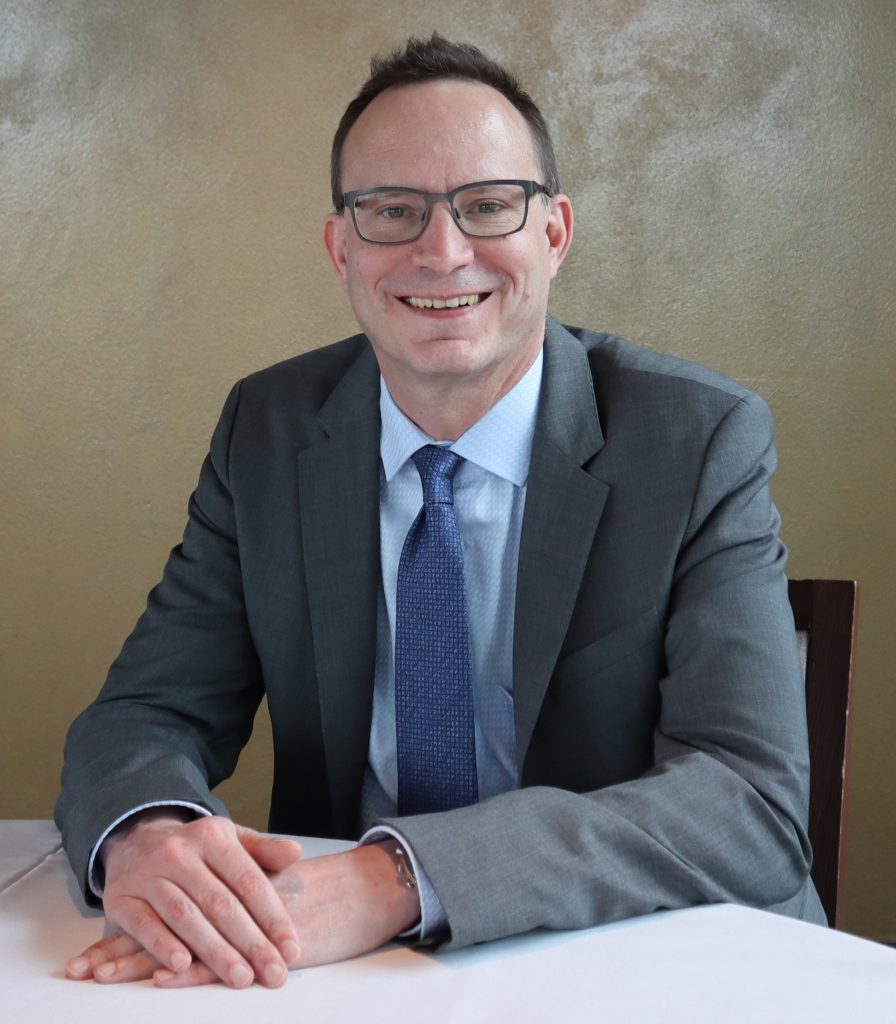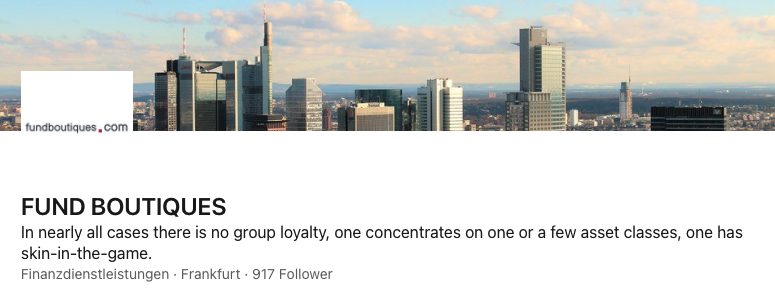Caduff: Mr. Hill, you are a first-class expert on the family office landscape in Germany. It’s not for nothing that you’re called “Mr. Family Office. Are you coming through the crisis well in business terms?
Hill: Family offices, like the classic Mittelstand and fund boutiques, are known to be “long-term thinkers”. I know many of the service providers in this segment. My feedback and also from various other service providers: Things are moving forward, sometimes at a slightly slower pace. However, it is interesting that there are also new providers with interesting services, for example, Peter Brock and Christian Stadermann (BEEWYZER) – I am perhaps somewhat selective and biased here due to joint panel discussions which had, I admit. In short, on the contrary, things have turned out much better than I would have expected, despite the “crisis”. Perhaps it also has something to do with the fact that we were already very well positioned digitally a long time before.
Caduff: You are extremely active on LinkedIn with always a lot of responses. Why are so many people interested in the topic of family offices?
Hill: You shouldn’t overestimate LinkedIn, but you shouldn’t underestimate it either – XING seems to have gone a bit on the defensive. I see social media primarily as a channel for staying in casual contact with a large number of market participants over a long period, or I use it more actively (MH transparency) when I want to make certain topics more visible, so to speak. I’m happy when people suggest topics to my attention. The attraction for me is the exchange of thoughts, interesting invitations, or simply input on topics like finance and also culture. Family offices and interest – you can perhaps distinguish between different groups in the market. Press, investors, providers, entrepreneurs, etc. I have been working on my account since 2005, but I also know the employment relationship from my time as a banker and asset manager. I admire hidden champions, people who do things they love and get better at over time. You find these personalities in the entrepreneurial space, and you find many of these entrepreneurs back in the role of principal at certain single-family offices. The exchange on the product level with these addresses is fun, now and then interesting networking with providers arises, which one gladly recommends or is recommended to others. And then there is the other group in the market, which is perhaps less motivated by content to get in touch with the respective family office. Primarily, the family office is seen here as “prey” to be hunted down. Please excuse my figurative language, to put it more precisely: the counterpart is simply seen here by the product provider in its function as a buyer. There is nothing wrong with this, it just becomes a problem when one of the predominantly interchangeable products (example: funds) is to be “imposed” on the family office. This purely functional interest is probably a very, very strong driver in this market. But it is probably also simply called the legitimate pursuit of business interests.
Caduff: If you read the trade press, you get the impression that such offices are springing up like mushrooms and that existing ones are getting bigger and bigger. Do you share this impression?

Hill: I admit that the term is still fuzzy. Of course, it is often used by banks or asset managers as a marketing label out of sales interest; this development is already preordained, so to speak, in the “free market economy & competition” system. Names are after certain time sound and smoke, the achievement counts then, I do not feel this as too deplorable. My feeling is even that many “real” family offices don’t care about that, because they usually deal with much more essential things than with topics like branding and positioning – especially in the single-family office segment. To give a practical example: I had the opportunity to have a brief professional exchange with Prof. Dr. Dietrich Grönemeyer and with his son Till Grönemeyer (Grönemeyer Health GmbH). Both have deep expertise in healthcare. Last year, the family, in combination with external service providers (Christian Exner & Team), also launched a liquid mutual fund on this topic. During the exchange of ideas, it spontaneously crossed my mind that this family constellation with this strong professional orientation in combination with the investment property is, in my opinion, rather close to a single-family office structure, compared to the structure of various other single-family offices. A concrete counter-example in another market segment, the topic of real estate developers: In extreme cases, one has the feeling here that some of these addresses would still like to adopt or would like to adopt the designation Single Family Office – to be fair, this only applies to those addresses that perhaps see themselves more in the role of “marketer”. Sometimes, to the outside world, these structures are not recognizable to third parties at first glance: Am I talking to a family office or to the real estate developer who adorns himself with the reputation of his “core seeder”? Again, that’s nothing to worry about, but it doesn’t necessarily promote transparency in the market.
Caduff: You can tell us for sure: in which German city is there the most and largest family offices?
Hill: Well, seriously speaking: Of course, I don’t know, as to where the boundaries are drawn and either the boundaries are often too blurred between single-family office, multi-family office, and pure asset managers. And I would be cautious if someone would claim to have transparent information about everything – addresses, investments, investment amount, and AuM (assets under management). But I would be pleased to be convinced otherwise by knowledgeable third parties.
Caduff: Is it correct to say that this business has very strong local roots?
Hill: Starting from the local middle class, I would agree with the statement. But on the other hand, many of these companies are also successful in business outside Germany or have an incentive, for example in asset protection, to put out more internationally. Corona, the real estate market, inflation, ECB policy – these are all reasons that keep people moving creatively, and not just in the family office sector. You have to look at the core business and the asset management area separately, so one can’t give a clear answer.
Caduff: You also publish frequently on topics such as family offices, fund boutiques, and fund selection. Even in Corona times – which topics will you be dealing with more intensively in 2021?
Hill: Ampega and Hansainvest kindly support me in dealing with various fund boutique topics in terms of content and publishing (keywords: FondsmanagerRunde, Auf.Den.Punkt., Fondstique, etc.). Through both of us getting to know each other at that time in Frankfurt (Caduff / Hill), among other things, the exchange of ideas with Alex Rauchenstein from SIA Funds AG resulted. Due to the moderation and the joint invitations to their investor events with Prof. Dr. Carlos Jarillo in Frankfurt and other cities in Germany I got a good insight into the thinking of Swiss fund boutiques. Due to got to know David Gamper from the Liechtenstein Investment Fund Association (LAVF) at a Frankfurt event, I have become more involved with the topic of Swiss asset managers and fund jurisdictions in recent years (relationship: DACH region, Luxembourg & Liechtenstein, etc.). Moreover, I used to work for Credit Suisse Asset Management in Frankfurt myself, and due to a fund of funds manager mandate at that time, I had also had the opportunity to write about the topic of fund boutiques in the “Liechtensteiner Volksblatt”. Interestingly, I am currently involved in a project related to Swiss asset managers (Plenum Investments AG) in combination with a Liechtenstein KVG. Here I am allowed to deal with the topic of cat bonds / insurance-linked securities in more depth. Through Martin Friedrich of Lansdowne Partners Austria (LPA), my attention was drawn to this topic area by his interview. As a fund of funds manager, he has looked at many providers in this segment. Writing on these topics complements very well the pure analysis one looks at concepts additionally through a different lens. All the addresses mentioned are more involved with ESG in 2021, at KVG as well as boutique level. Specifically – despite Corona times, I hope for live events in the second half of the year, perhaps am also too optimistic, a specialist webinar is in any case in the planning, so to speak “organically” thought. In addition to value investment moderation in the fall in Frankfurt (Fondskongress in Mannheim with a question mark – Corona), I look forward to May 12, 2021, as I will have a “reunion” with Tobias Karow and colleague (STIFTUNGSMARKTPLATZ.EU). At his virtual foundation day, these investors get a platform to exchange ideas on the topic of asset management. Only so much I would like to betray: As a panelist, I’m sure I’ll have an interesting exchange of ideas here on the topics of asset allocation, equities, bonds, and Franciscans. Last but not least, I am of course looking forward to your the “Mountain Talks” in St. Moritz, as well as to a personal reunion at your “Expert Lunch” in Frankfurt, in 2021 or 2022 – of course, we all need luck and health in the industry so that we can shake hands in person again in the second half of the year!
About the person
Markus Hill has been an independent asset management consultant since mid-2005. His professional background includes companies such as SEB Bank (marketing/product management, investment banking) and Credit Suisse Asset Management (sales, asset management). His fields of activity include the support of mandates in marketing, PR, and fund selection. As former Head of Sales mutual funds at an investment boutique (equities and fixed income) and in external cooperation with a fund of funds manager, small to mid-sized asset management firms are the focus of his interest. Besides, he is journalistically involved with the topics of fund boutiques (fundboutiques.com) and the use of mutual funds by institutional investors as well as with the topic of target fund selection in multi-management approaches. Also, the financial center Frankfurt is close to his heart as a place for the exchange of ideas – “art, culture & finance on a small flame”.

Related articles:
- Family offices and fund boutiques have many similarities (Interview – Thomas Caduff, Markus Hill)
- Family offices, fund initiators, and the “burning passion” factor
- Frankfurt is always worth a trip – not only for financial professionals! (Interview – Thomas Caduff, Markus Hill)
Source: www.fundplat.com

One thought on “FUND BOUTIQUES & PRIVATE LABEL FUNDS: Family Offices, Fund Boutiques, and the Swiss Expertise”